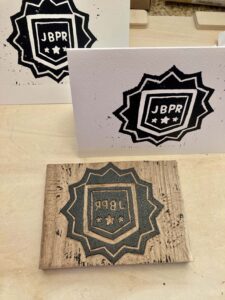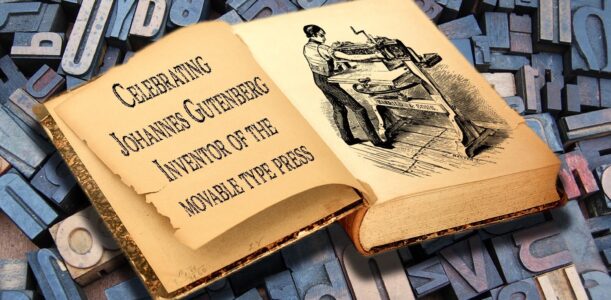
This morning, when I logged in for the day, I noticed that Google is celebrating Johannes Gutenberg. Gutenberg was the inventor of the movable-type printing press and arguably the father of mass communications. I’m someone who has been a member of the press, dedicated his career to strategic communications, and is a firm believer in the fourth estate. I tip my hat to the inventor who made made a massive move in the realm of mass communications.
The press existed before the invention of the movable type in multiple forms. It was possible to print items in quantity but it was still expensive and time-consuming. Each item to be printed was original and was unchangeable. Usually, these were woodblock carvings that were inked, pressed, dried, and then distributed. Changes required a new woodblock.
I have seen just how difficult and time-consuming this process is. My darling wife recently started her own business, Penny Bun Press. She carves and prints unique art for individuals and businesses. She hand carves each unique item and sells prints, cards, logo designs, and even occasionally the blocks on her Etsy shop.
Woodblock printing, also called woodcut printing, is beautiful and can be simple or elaborate. Each block is unique and individually carved. I have watched my spouse spend many hours carving a block for a logo or a card that she is going to do a print run. The woodblock prints are organic looking and each print picks up different details from the wood.
Movable-type meant that the type-setter could set individual plates. This is said to have opened up an information revolution in the Middle Ages. It is also said that Gutenberg had a hand in copper plate engraved printing which allowed for the printing of elaborate pictures. The availability of printed material to the emerging middle-classes increased the consumption of information and the growth of the middle-age information economy and literacy.
What Guttenberg did seems small today but was a huge development in the press at the time. He made it so that the printer could change the message quickly and efficiently. He allowed the economically viable mass production of books. He created the demand for the mass distribution of information. He made the written word more accessible to a much larger audience.


